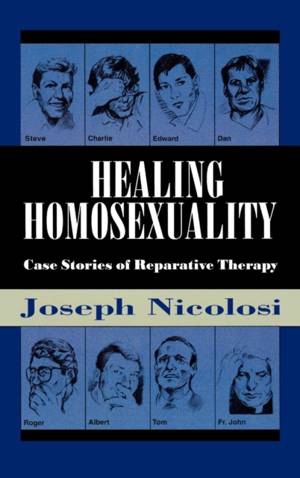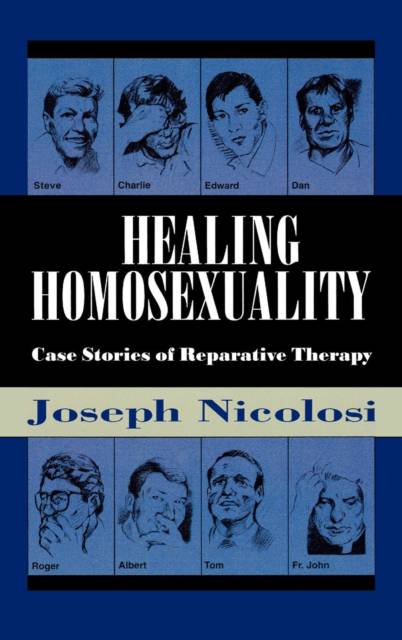
- Retrait gratuit dans votre magasin Club
- 7.000.000 titres dans notre catalogue
- Payer en toute sécurité
- Toujours un magasin près de chez vous
- Retrait gratuit dans votre magasin Club
- 7.000.0000 titres dans notre catalogue
- Payer en toute sécurité
- Toujours un magasin près de chez vous
Healing Homosexuality
Case Stories of Reparative Therapy
Lucy Freeman, Joseph Nicolosi
Livre relié | Anglais
104,95 €
+ 209 points
Description
In 1973, when all the arguments were presented to the American Psychiatric Association both for and against the idea of homosexuality as pathology, it was the personal disclosures of gay men that had the most influence. Listening to their stories of frustration in treatmentDand their newfound happiness through acceptance of a gay identityDthe American Psychiatric Association voted to omit homosexuality as a diagnostic category. Now, twenty years later, Dr. Joseph Nicolosi presents the opposite kind of personal testimony. This testimony is from homosexual men who have tried to accept a gay identity but were dissatisfied, and then benefitted from psychotherapy to help free them of homosexuality. While each client has his unique story, Nicolosi has chosen eight men as representative of the personalities he has encountered in the twelve years during which he has treated over 200 homosexual clients. These men are engaged in a 'two-front war'Dan internal assault against their own unwanted desires, and an external battle against a popular culture that does not understand or value their struggle. In their own words, we hear these men's struggles to develop healthy, non-erotic male friendships. We hear of their fear and anger toward the men in their lives, and their strained relationships with the fathers they never understood. Nicolosi contends that every man possesses aspects of these clients: The frailty of Albert, the integrity of Charlie, the rage of Dan, the narcissism of Steve, and the ambivalence of Roger, to list some of them. Some readers of this book may be surprised by the directive style of Dr. Nicolosi's therapeutic intervention. In part, this is due to the editorial synthesis of the transcript. More importantly, however, reparative therapy does require a more involved therapistDa benevolent provocateur who departs from the tradition of uninvolved, opaque analyst to become a salient male presence. The therapist must balance active challenge with warm encouragement to follow the father-son model. This is an essential principle of reparative therapy. A Jason Aronson Book
Spécifications
Parties prenantes
- Auteur(s) :
- Editeur:
Contenu
- Nombre de pages :
- 240
- Langue:
- Anglais
Caractéristiques
- EAN:
- 9780876683408
- Date de parution :
- 07-07-77
- Format:
- Livre relié
- Format numérique:
- Genaaid
- Dimensions :
- 160 mm x 235 mm
- Poids :
- 585 g

Les avis
Nous publions uniquement les avis qui respectent les conditions requises. Consultez nos conditions pour les avis.






